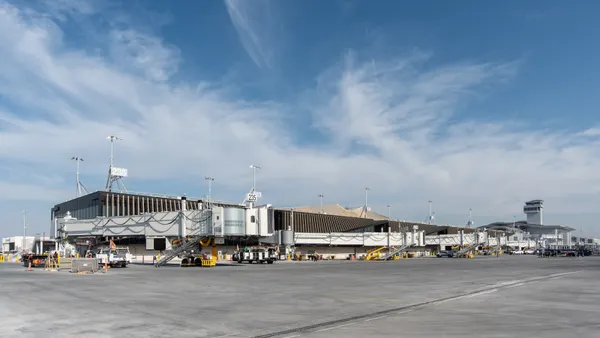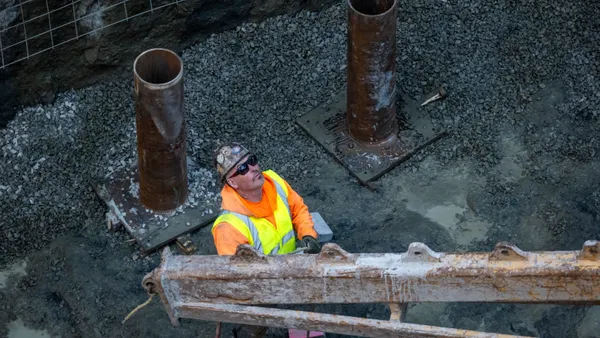Dive Brief:
- Despite a 16% reduction in the pace of North Texas construction activity between January and May compared to the same five-month period last year, Dallas Fort-Worth (D-FW) is second only to New York City in the value of construction starts, according to a Dallas Morning News analysis of information provided by Dodge Data & Analytics.
- From January 2018 to May 2018, the value of D-FW construction starts totaled $8.8 billion, while the New York City metro area saw $15 billion in new construction activity. The value of both D-FW and New York City starts was below where it was last year, Dodge found. Following D-FW's record $22 billion in starts last year, nonresidential building in the area decreased by more than 30% and residential starts dropped 1% in the first five months of this year compared to the same period last year.
- More than 50% of the busiest construction markets saw reduced activity in the first five months of 2018, Dodge found, with San Francisco seeing the biggest drop-off of them all, at 49%. Las Vegas enjoyed the biggest gain in starts, 83%, while Minneapolis (52%) and Miami (38%) also saw healthy gains.
Dive Insight:
The construction industry is facing some challenges, starting with the pervasive shortage of skilled labor and rising material prices.
Despite these potential hurdles, construction executives polled by Engineering News-Record for its second-quarter Construction Industry Confidence survey are still optimistic about the short-term outlook. Most predicted growth into 2019, and almost 30% said the construction industry would continue its expansion at least for the next 12 to 18 months. Nevertheless, 15% said the industry would be in a decline by then.
Only 16% responded that the construction industry would still be in a growth phase in three years. In contrast, 35% predicted that the industry would see a contraction in three years' time.
Material prices had already been increasing before President Donald Trump's tariffs on steel and aluminum imports went into effect, but most participants in the ENR survey are now concerned about where steel prices will land.
Despite the concern, according to an analysis by Archinect, the worry about how much the 25% steel tariff will impact project costs could be exaggerated. Earlier this year, Archinect projected that the average total cost increase for projects using structural steel as only one component would be less than 1%.












